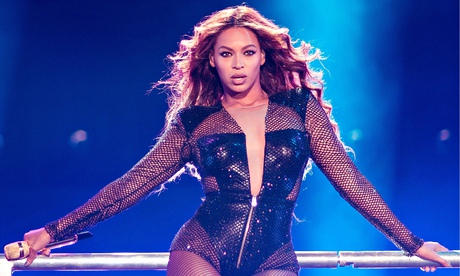
Is this the week that veganism finally came of age? At the Baftas, stars will have the choice of opting for a special vegan menu that includes quinoa salad and roasted butternut squash; rapper Lil B has partnered with a vegan food company to launch an emoji app that delivers vegan versions of his lyrics to fans’ phones; and pop royalty Beyoncé has launched a vegan meal delivery service, called 22 Days Nutrition, with her trainer Marco Borges.
Beyoncé said she was inspired to launch the service after deciding to try veganism with husband Jay Z. Her meals, which cost from $9.76 (£6.43) to $16.50 a head, are also free from gluten, soya, dairy and GMOs.
The singer joins a host of celebrities, including Joaquin Phoenix, Thandie Newton, Woody Harrelson and Natalie Portman, in choosing a vegan diet. And luxury fashion brands such as Stella McCartney and Joseph Altuzarra have featured artificial or “vegan” leather in their latest catwalk shows. Is this a sign of our times? Alvin Roth, a Nobel prizewinning economist and professor at Stanford and Harvard universities, recently predicted that meat-eating would soon become “repugnant” to the general population.
Changes in consumer eating habits appear to back his claim. In 2012 there were an estimated 150,000 vegans in the UK, a number thought to have increased dramatically. Mintel’s 2014 report on the market for dairy drinks, milk and cream, showed the non-dairy market jumping from 36m litres in 2011 to 92m litres in 2013, an increase of 155%. Plant-based, non-dairy foods are worth £150.6m a year and sales of soya-based alternatives to yoghurt are rising by 8% year on year.
“The popularity of veganism has a lot to do with the positive image that it now has in the media, and that’s helped by celebrities who are taking pledges or who are longstanding vegans,” said Jasmijn de Boo, CEO of the Vegan Society. “People look up to these celebrities and would like to follow what they’re doing.”
The number of people taking the Vegan Society’s “try it for 30 days” pledge rose by 39% from 2012 to 2013. For De Boo, this reflects a more compassionate and conscientious society. “In America, we find health is an important reason; in the UK, concern for the animals is a stronger incentive.”
Veganuary, a campaign that encourages people to go vegan for January, saw its Facebook “likes” grow from 6,000 to almost 23,000 in less than a year. Social media have played their part in making veganism popular among younger people. Ella Woodward, the woman behind Deliciously Ella, a blog and app that offers vegan and gluten-free recipes, became the fastest-selling debut cookbook author since records began after acquiring more than 300,000 followers on Instagram.
And the Good Life Eatery, a cafe on Sloane Avenue in west London that calls itself the capital’s first “healthy, tasty eatery”, was promoted purely via social media. Yasmine Larizadeh, who launched the cafe with Shirin Kouros, said: “I went to see a consultant in Oxfordshire recently. We had gluten-free baked donuts and offered one to our cab driver – a 60-year-old man. He turned round and said, ‘No thanks, I’m not eating any sugar or gluten’.”







